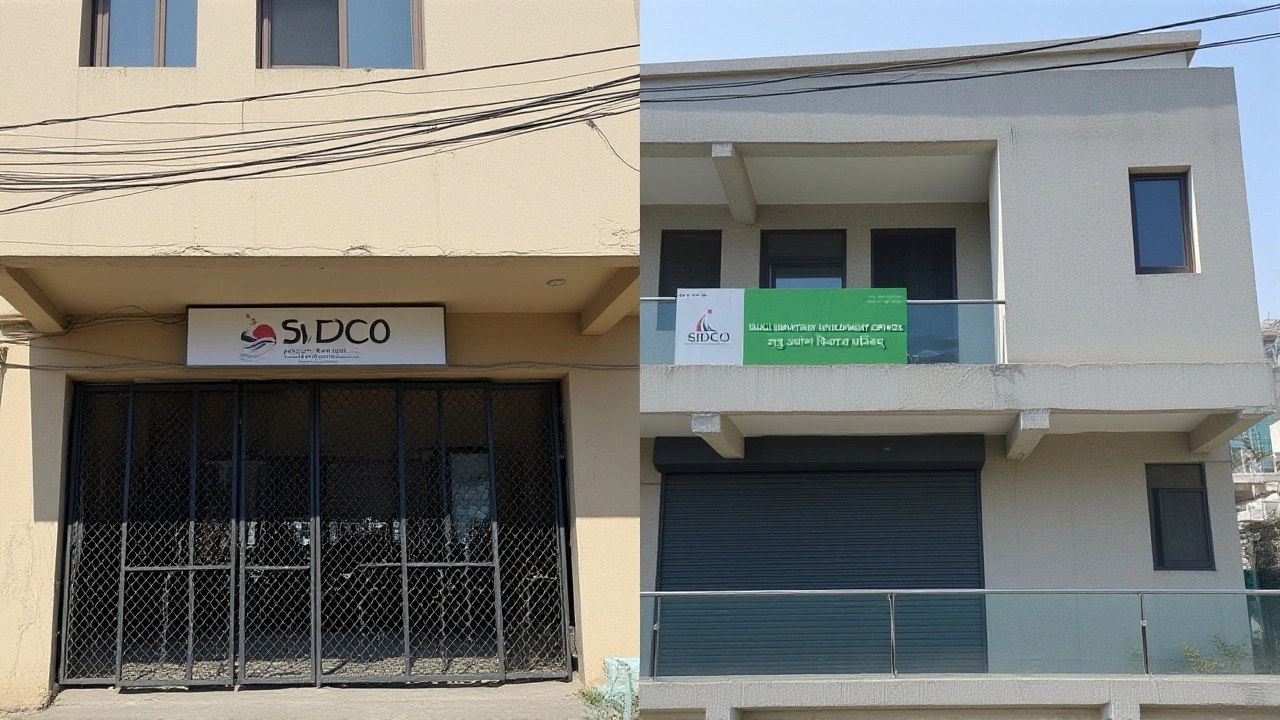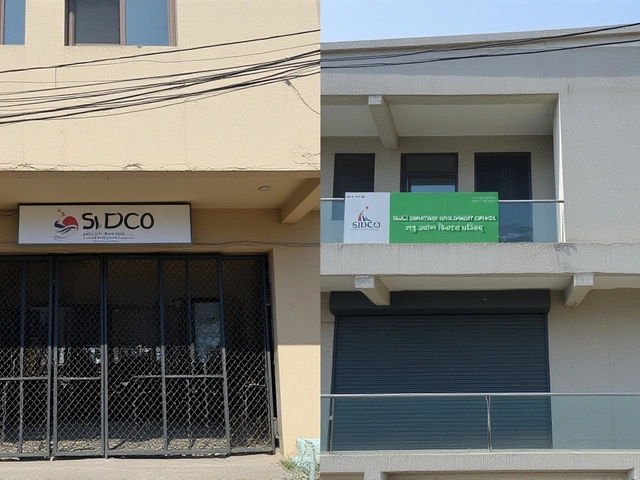More than 1,300 young people from Uttarakhand lost money to a fake job training scheme run by a Patna-based organization that copied the name and logo of a central government ministry—CIDCO Trust. The case was formally registered at the Nehru Colony Police Station in Dehradun, triggering a multi-state investigation after victims came forward with complaints of empty promises and vanished payments. The scam, which operated for months—if not years—targeted job-seeking youths with glossy brochures, fake government letterheads, and office setups designed to look like official ministry branches.
The Impersonation Game
The CIDCO Trust didn’t just borrow a name—it stole the visual DNA of India’s Ministry of Housing and Urban Affairs. Investigators found its logo, font, color scheme, and even official-looking seals were nearly identical to those used by legitimate government bodies. The name itself is a deliberate play on City and Industrial Development Corporation (CIDCO), the real Maharashtra-based public sector entity that develops urban infrastructure under central oversight. But this CIDCO Trust had no connection to it—or to any government agency.
"They weren’t just shady. They were surgical," said Inspector Praveen Singh Pundir, leading the investigation. "They knew exactly how to trigger trust. People saw the logo, heard "Ministry-affiliated," and handed over cash without blinking."
Who’s Behind It?
The key figures named in the FIR are all based in Bihar: Sugandh Kumar, president; Abhishek Kumar, treasurer; Abhay Kumar, secretary; and Pradeep Singh Thakur, project manager. All four hold official titles within the trust’s Patna registration under the Indian Trusts Act, 1882. But when police served notices demanding explanations, not one showed up. Not even to deny the allegations.
During interrogation, Pradeep Singh Thakur admitted the trust had enrolled over 1,300 youths from Uttarakhand alone. Cashier Ashika Gupta, also named in the probe, confirmed cash transactions were handled through untraceable local channels—no bank accounts, no digital trails. "It was all envelopes and handovers," she reportedly told police. "They told us it was safer that way."
How the Scam Worked
The operation was chillingly systematic. Recruitment teams set up temporary offices in Dehradun, Haridwar, and other Uttarakhand towns, often renting spaces near government buildings. Flyers promised "government-sponsored skill certification" and "direct placement in PSU jobs." Some victims were told they’d be selected for "UPSC preparatory programs" or "urban development apprenticeships." Fees ranged from ₹5,000 to ₹25,000 per applicant—money that vanished into private pockets.
"I paid ₹18,000 for a "job guarantee" in the Ministry of Urban Development," said Rajiv Mehta, a 22-year-old from Dehradun who lost his savings. "They gave me a laminated certificate with the ministry’s seal. I showed it to my uncle—he works in a state department. He laughed and said, ‘This isn’t real. That seal hasn’t been used since 2019.’"

Multi-State Network, One Target
While Uttarakhand was the epicenter—with over 1,300 confirmed victims—the trust operated in at least nine states. Police have confirmed active offices in Patna and Muzaffarpur, Bihar, and suspect operations in Uttar Pradesh, Rajasthan, Madhya Pradesh, Haryana, Punjab, Odisha, and West Bengal. State-level coordinators collected fees, issued fake documents, and directed victims to "waiting lists" that never materialized.
"This isn’t a local con," said Station House Officer Sanjit Kumar. "It’s a franchise of fraud. They replicated the model in every state. The only difference was the local language on the flyers."
Why It Worked—And Why It’s So Dangerous
For years, young Indians have been desperate for formal employment. With over 10 million job seekers entering the market annually, and only a fraction of those landing government roles, scams like this thrive on hope. The CIDCO Trust didn’t invent deception—they perfected it. They used real government aesthetics, real legal registration (in Bihar), and real human vulnerability.
"The worst part?" said Dr. Anjali Verma, a social psychologist in Dehradun. "These kids didn’t feel cheated. They felt proud. They told their families, ‘I’m part of a government program.’ That’s the psychological trap. It’s not just money they lost. It’s dignity."

What Happens Next?
Warrants are out for all four accused. Forensic teams are tracing cash flows through Ashika Gupta’s personal transactions and examining digital footprints from the trust’s websites and social media pages—some of which still remain active. The Ministry of Housing and Urban Affairs has issued a public alert, urging citizens to verify any organization claiming government affiliation through its official portal: www.mohua.gov.in.
Cross-state coordination is underway between Uttarakhand, Bihar, and other affected states. The National Crime Records Bureau has been notified, and the case may be elevated to the Central Bureau of Investigation if evidence suggests nationwide coordination beyond state boundaries.
What You Need to Know
If you’re approached by any "trust," "foundation," or "council" promising government jobs, training, or certifications:
- Check the organization’s registration on the Registrar of Societies portal (even if it’s a trust).
- Never pay cash. Government programs don’t ask for upfront fees.
- Verify logos and names on official ministry websites—don’t trust brochures.
- Report suspicious activity to your state’s Department of Social Welfare.
Frequently Asked Questions
How many people have been affected by the CIDCO Trust scam?
Police have confirmed over 1,300 victims from Uttarakhand alone, with suspicions of thousands more across nine states. Exact totals are still being compiled as investigations expand into Bihar, Uttar Pradesh, and other regions. Most victims paid between ₹5,000 and ₹25,000, making the estimated total fraud likely exceed ₹20 million.
Is CIDCO Trust a legitimate government body?
No. The real CIDCO is the City and Industrial Development Corporation of Maharashtra, a public sector entity under the state government. The scam organization is a completely separate, privately registered trust in Patna with zero ties to any government ministry. Its name and logo were deliberately designed to confuse the public.
Why haven’t the accused been arrested yet?
All four key figures—Sugandh Kumar, Abhishek Kumar, Abhay Kumar, and Pradeep Singh Thakur—ignored police notices and have gone into hiding. Warrants have been issued, and Interpol notices may follow if they flee the country. Authorities believe they may be using intermediaries to move funds and avoid detection.
What should I do if I paid money to CIDCO Trust?
If you paid any amount to CIDCO Trust for jobs or training, immediately file a written complaint at your local police station and request a copy of the FIR. Preserve all receipts, brochures, and communication. Contact the Uttarakhand Department of Social Welfare at 0135-2700000 for support. Even if you’re outside Uttarakhand, your case can be linked to the multi-state investigation.
How common are scams like this in India?
Extremely common. In 2023 alone, over 1,200 similar cases were registered nationwide under "impersonation of government bodies." The trend is growing as job desperation rises. Recent scams mimicked NITI Aayog, SSC, and even the Prime Minister’s Office. The CIDCO Trust case is notable for its scale, coordination, and sophistication—not its uniqueness.
What’s being done to prevent future scams?
The Ministry of Housing and Urban Affairs is now requiring all affiliated bodies to display a unique QR code on official documents, linking to a verified government database. State governments are also launching public awareness campaigns in colleges and employment exchanges. But the real defense? Vigilance. Always verify before you pay.








Write a comment